Who was Churchill?
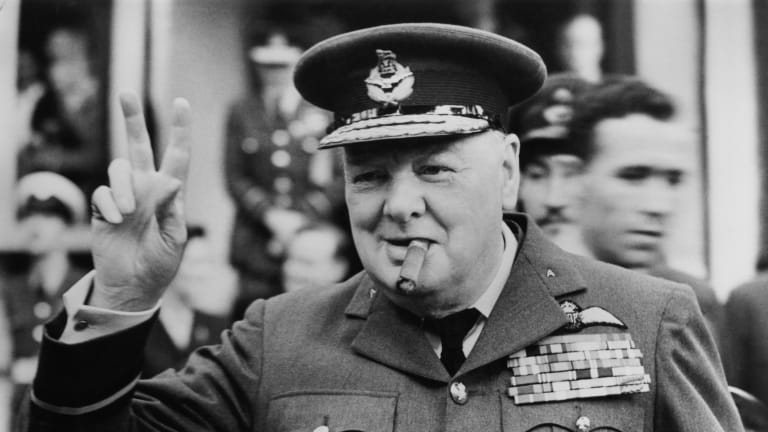
As author and Churchill biographer Andrew Roberts, in his magisterial Churchill: Walking with Destiny quoted Robert Rhodes James in describing Winston Churchill:
‘He was protean [tending or able to change frequently or easily]. One of Churchill’s biographers, Robert Rhodes James, described him as a “politician, sportsman, artist, orator, historian, parliamentarian, journalist, essayist, gambler, soldier, war correspondent, adventurer, patriot, internationalist, dreamer, pragmatist, strategist, Zionist, imperialist, monarchist, democrat, egocentric, hedonist, romantic”. He was indeed all of those, but to them might also be added: butterfly-collector, big-game hunter, animal-lover, newspaper editor, spy, bricklayer, wit, pilot, horseman, novelist and crybaby (this last the Duke and Duchess of Windsor’s nickname for him).
-Andrew Roberts, Churchill (p. 968). Penguin Publishing Group. Kindle Edition.
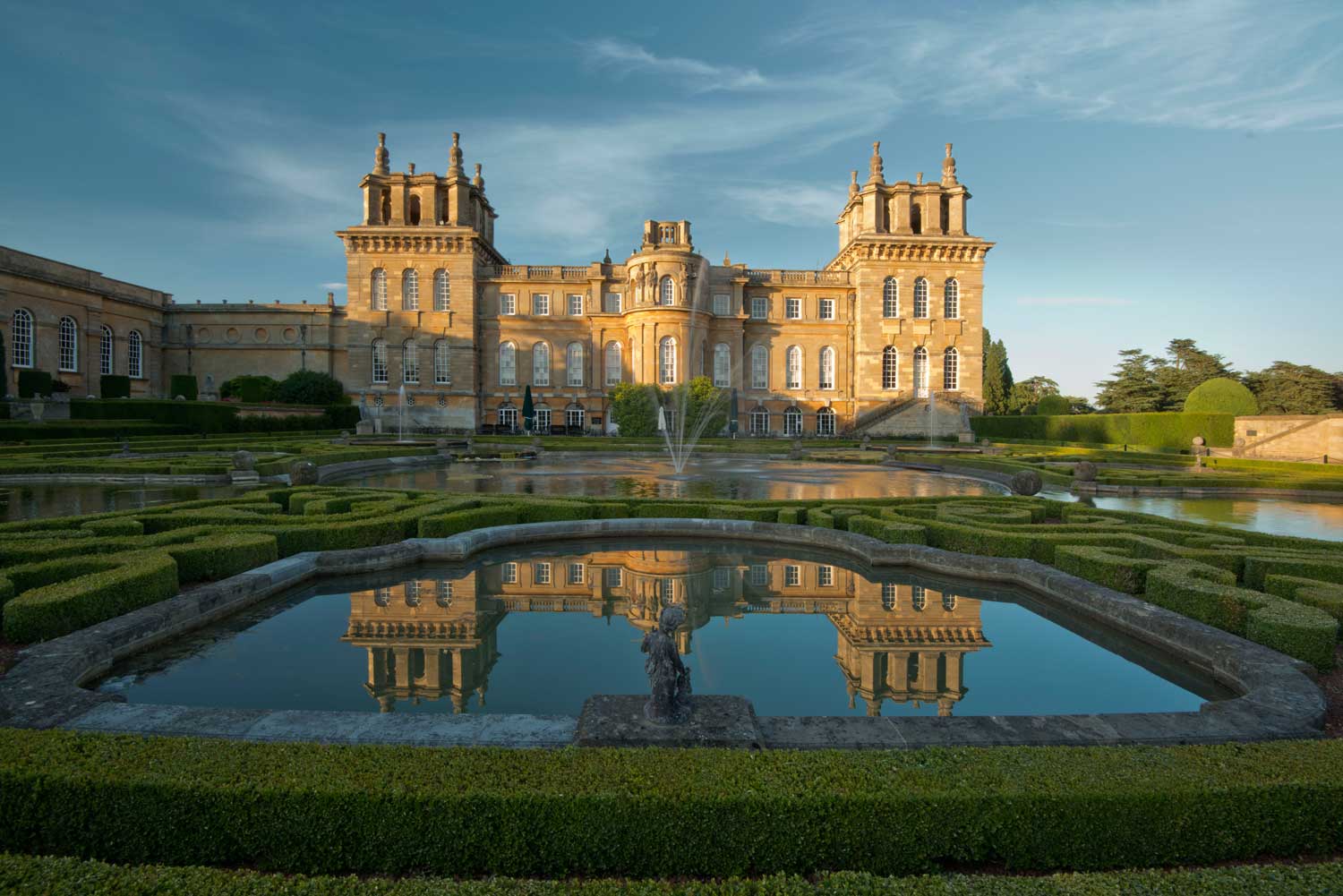
Blenheim Palace is home to the Dukes of Marlborough, including Winston Churchill’s paternal grandfather the 7th Duke.
Born 30 November to American socialite Jennie Jerome of Brooklyn, New York and Lord Randolph Churchill, second son of John Spencer-Churchill, 7th Duke of Marlborough. Churchill was born prematurely when his mother went into labour at the family seat of Blenheim Palace.
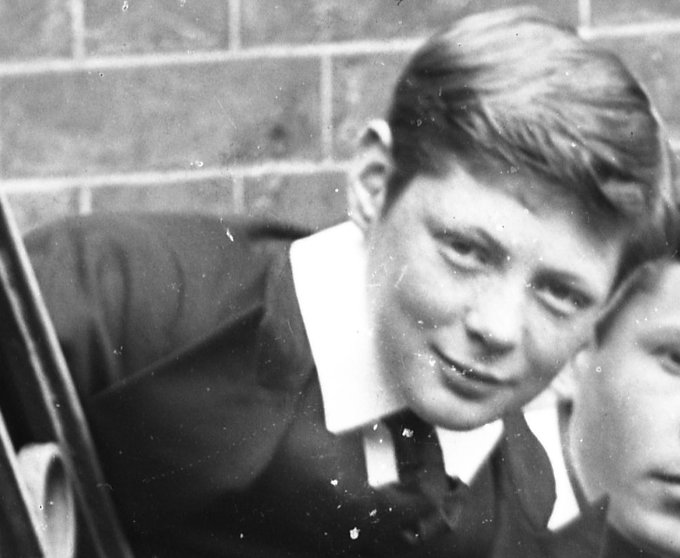
Young Winston Churchill as a student at Harrow School, 1892
In February, Churchill was commissioned as a second lieutenant in the 4th Queen’s Own Hussars regiment of the British Army.
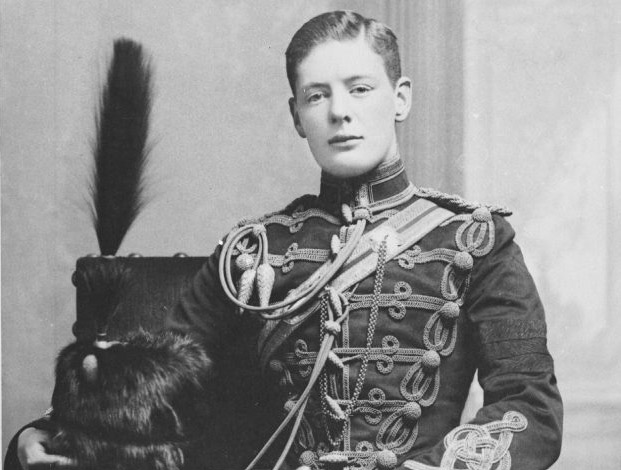
Churchill in the dress uniform of the 4th Queen’s Own Hussars, c. 1895 © Churchill Archives, Broadwater Collection
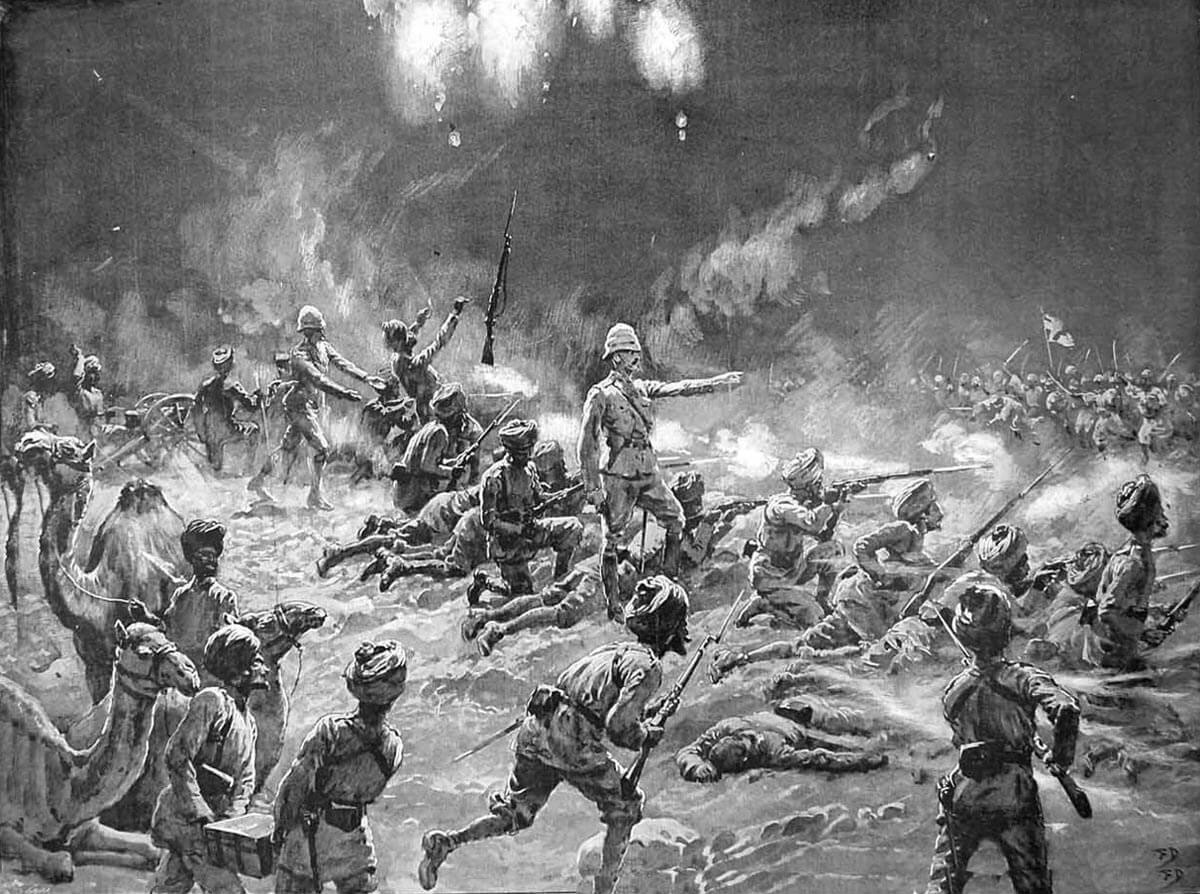
Malakand Field Force on the North-West Frontier of India in 1897
Publishes his first book on 14 March, The Story of the Malakand Field Force about his time as a soldier in India. He was to make (and spend!) his fortune writing for a living.
On 2 December, he escaped a Boer POW Camp in South Africa. He was on the cover of magazines and newspapers which brought him worldwide fame.
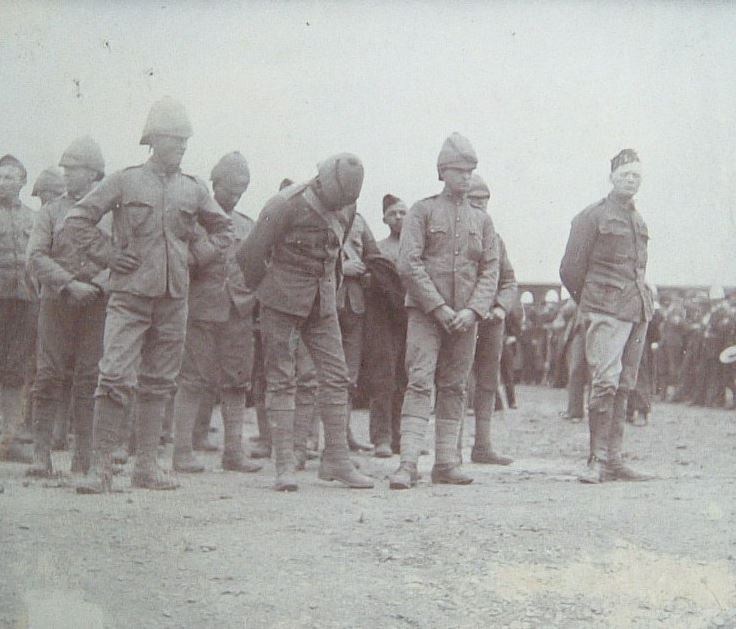
Winston Churchill as prisoner of war © Churchill Archives Centre, Broadwater Collection
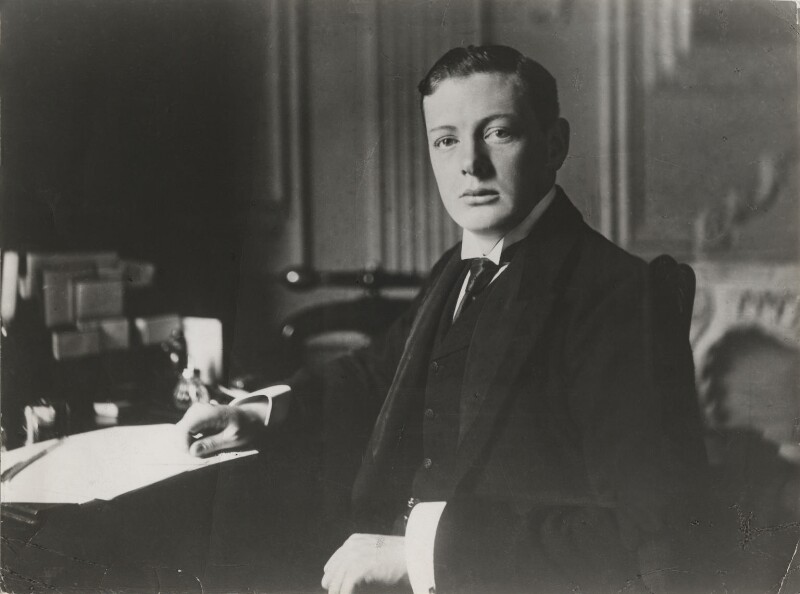
Winston Churchill as a young politician, 30 May 1899 © National Portrait Gallery, London
After winning his first election, Churchill took his seat in the House of Commons in February.
Married Clementine Hozier, daughter of Sir Henry Hozier and Lady Blanche (née Ogilvy) on 12 September.
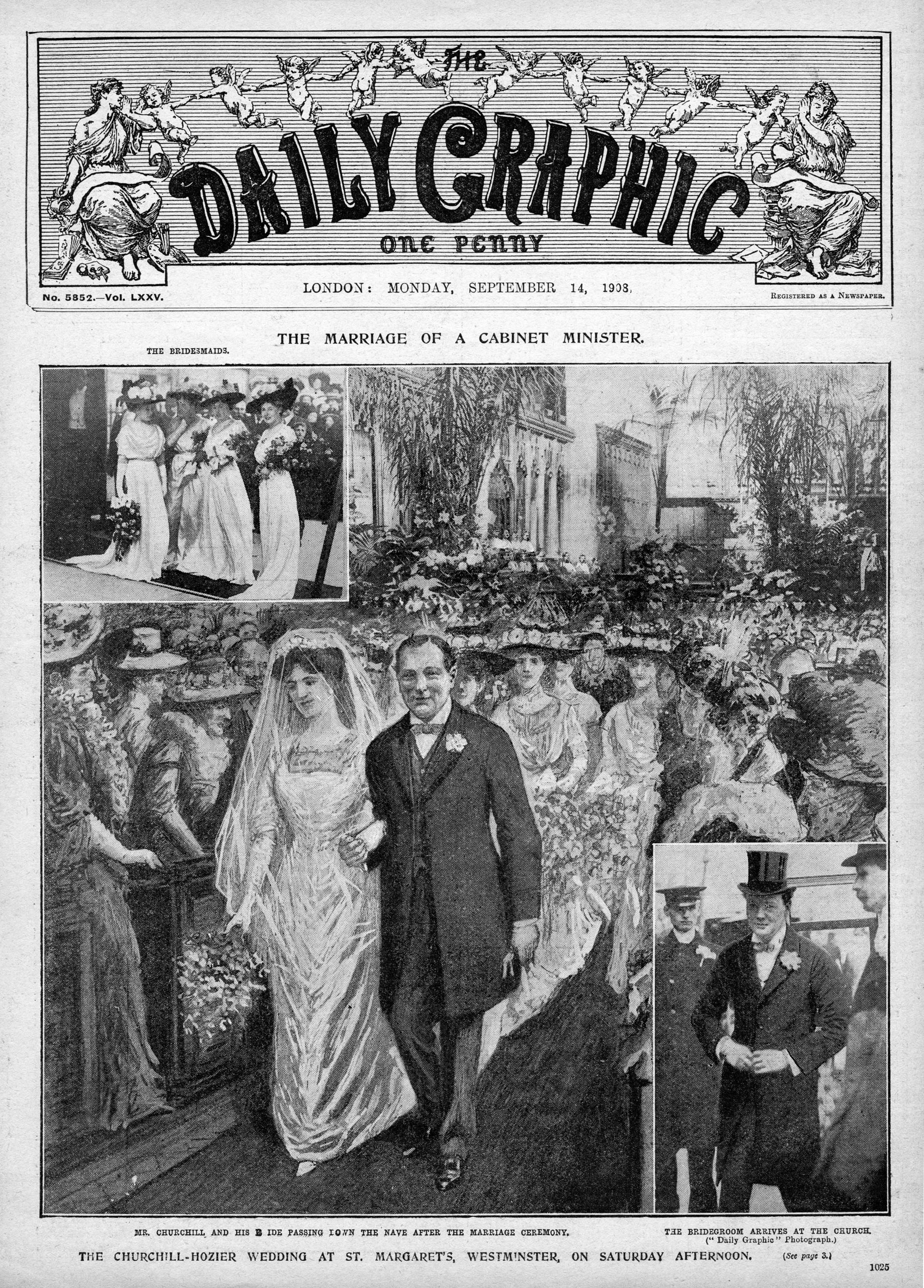
1908 Daily Graphic front page Wedding of Winston Churchill and Clementine Hozier
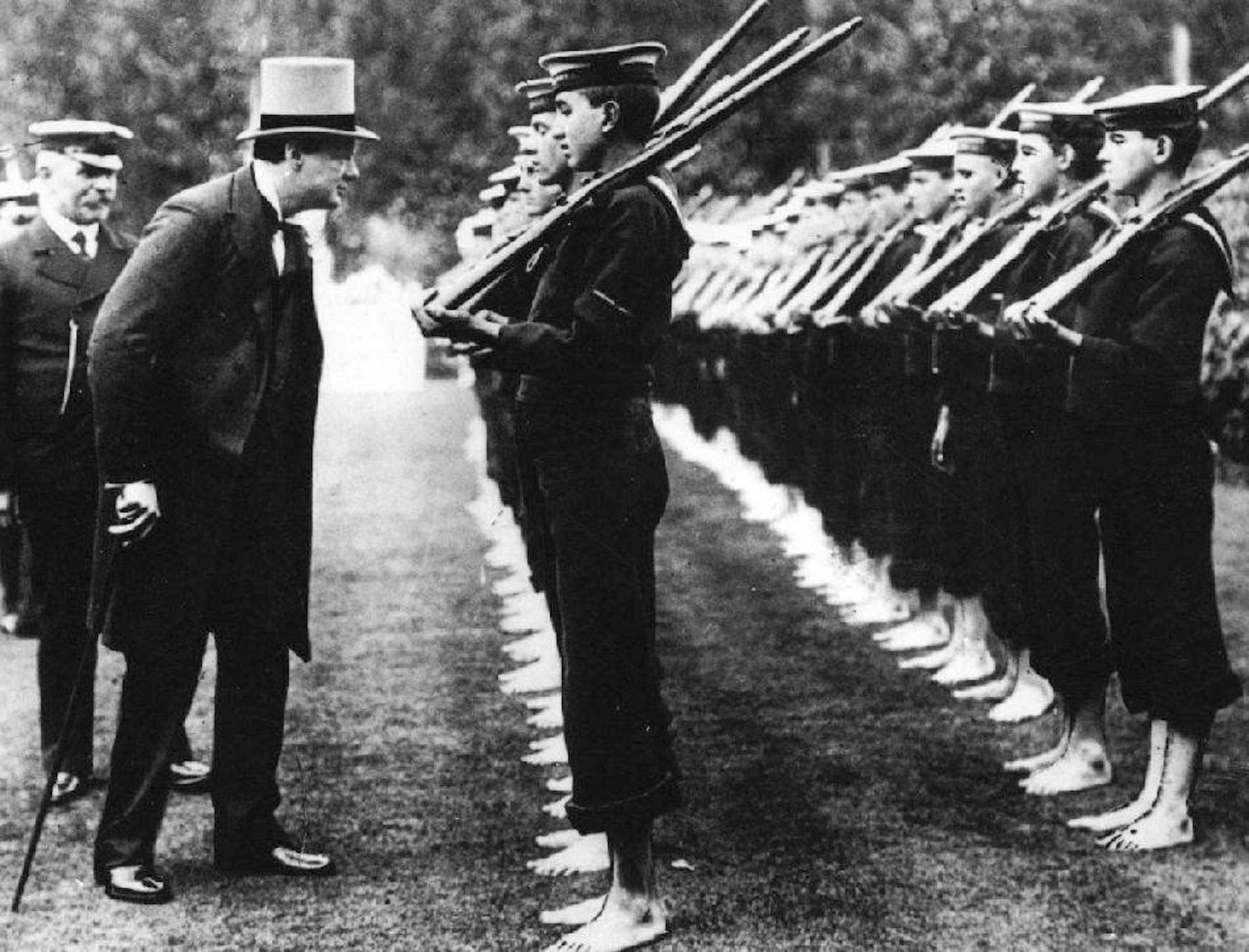
Churchill as First Lord of Admiralty inspecting Royal Navy cadets
During the First World War, the Prime Minister appointed Churchill First Lord of the Admiralty (civilian head of the British Navy) in October. He resigned in May 1915 after the disastrous Gallipoli Campaign.
Appointed Lieutenant-Colonel, commanding 6th Battalion Royal Scots and served on the western front with Grenadier Guards in Fusiliers, France.
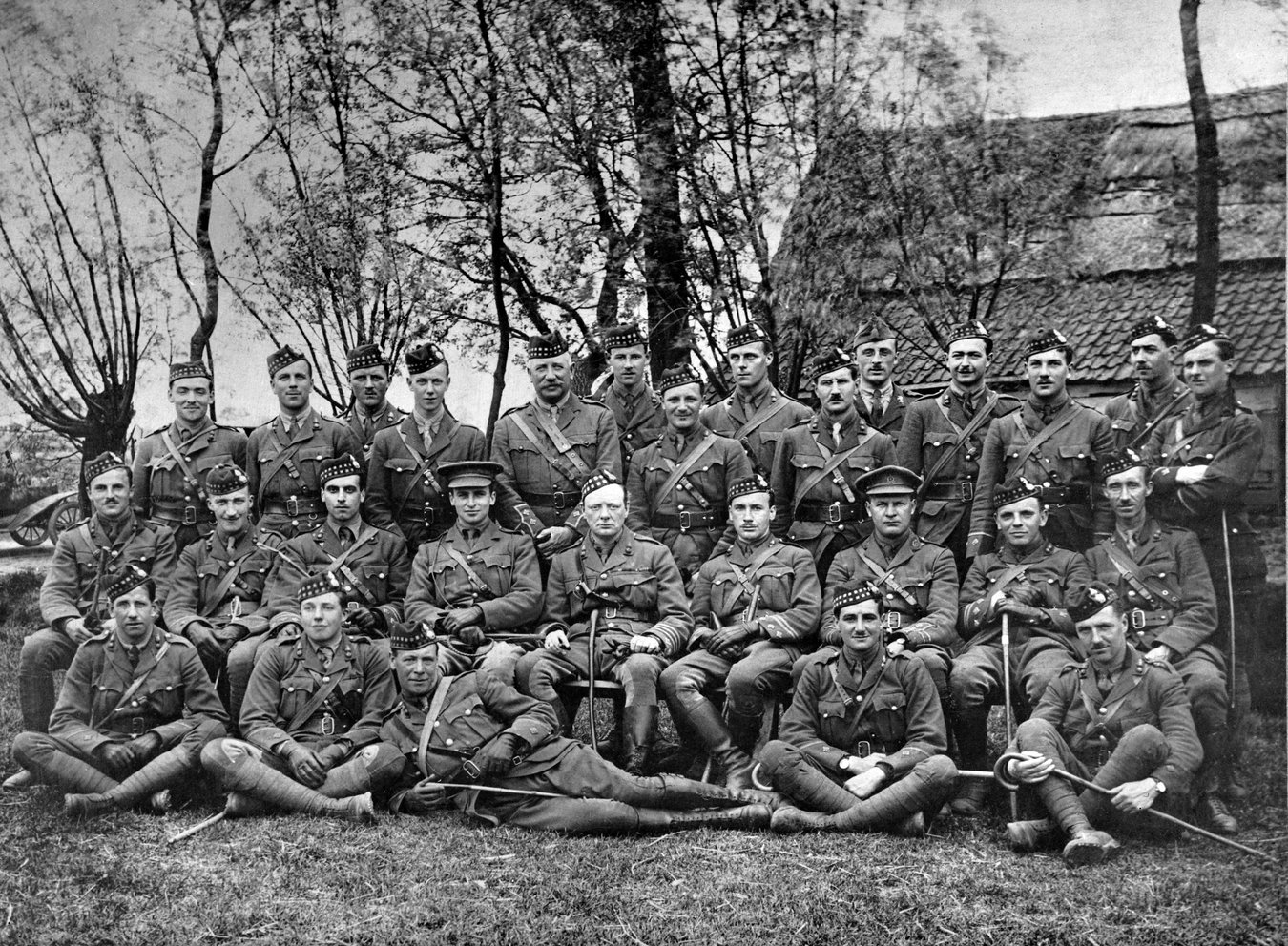
Churchill (centre) as Lieutenant-Colonel, commanding the 6th Battalion, the Royal Scots Fusiliers near Ploegstreert, Belgium. Archie Sinclair on Churchill's right, 1916
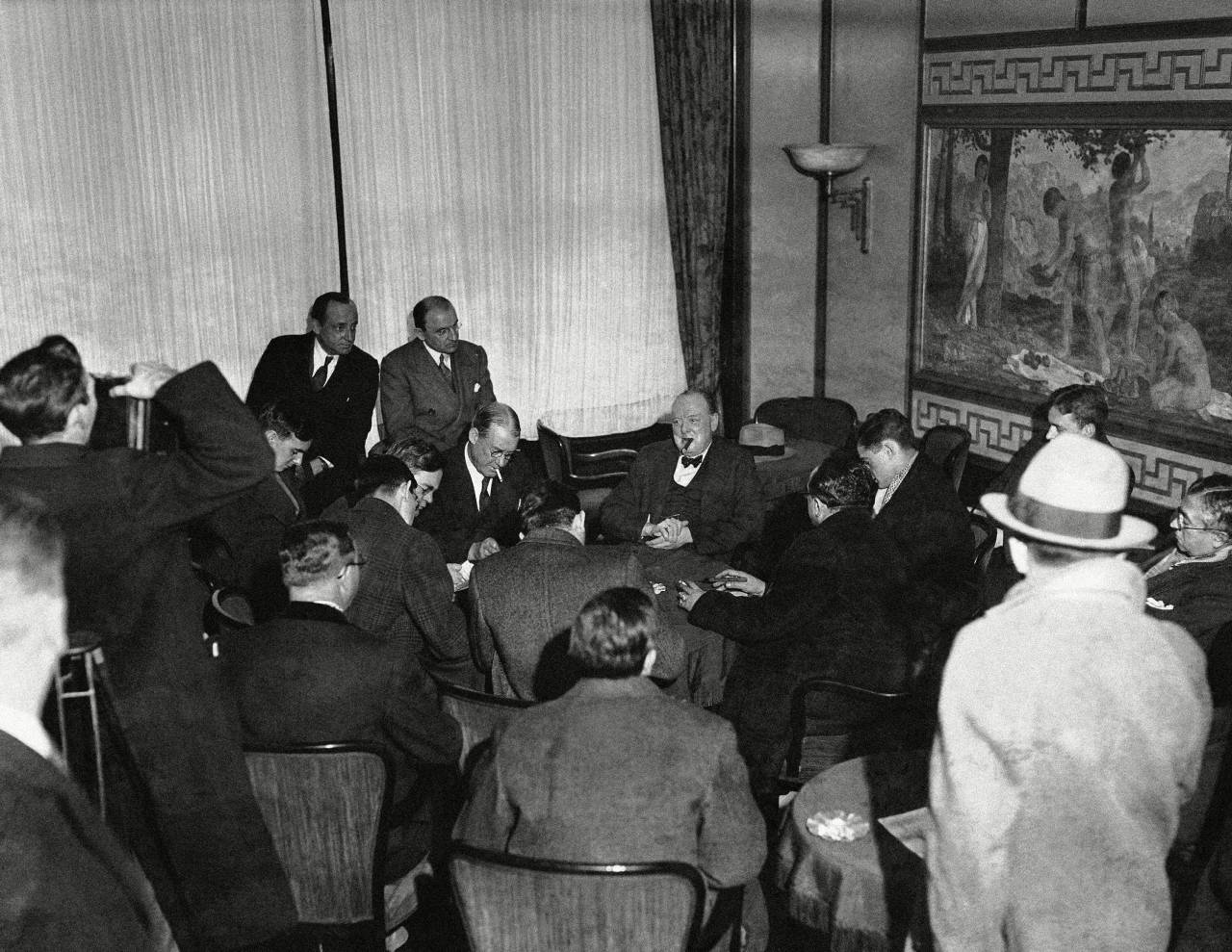
Winston Churchill talking to reporters on board the liner Europa in New York City upon his arrival to begin a series of lectures in the United States, 11 December 1931
Went on his first lecture tour in the United States. He was the highest-paid lecturer at the time, promoting his books.
In September 1939 Churchill once again was called to serve in government as First Lord of the Admiralty until he became Prime Minister in 1940.
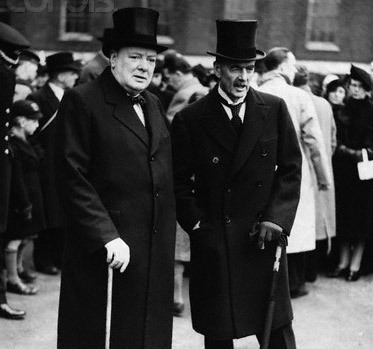
British Prime Minister Neville Chamberlain, with his future successor Winston Churchill at a medal ceremony attended by the King, London, 1939 © Hulton-Deutsch Collection/CORBIS
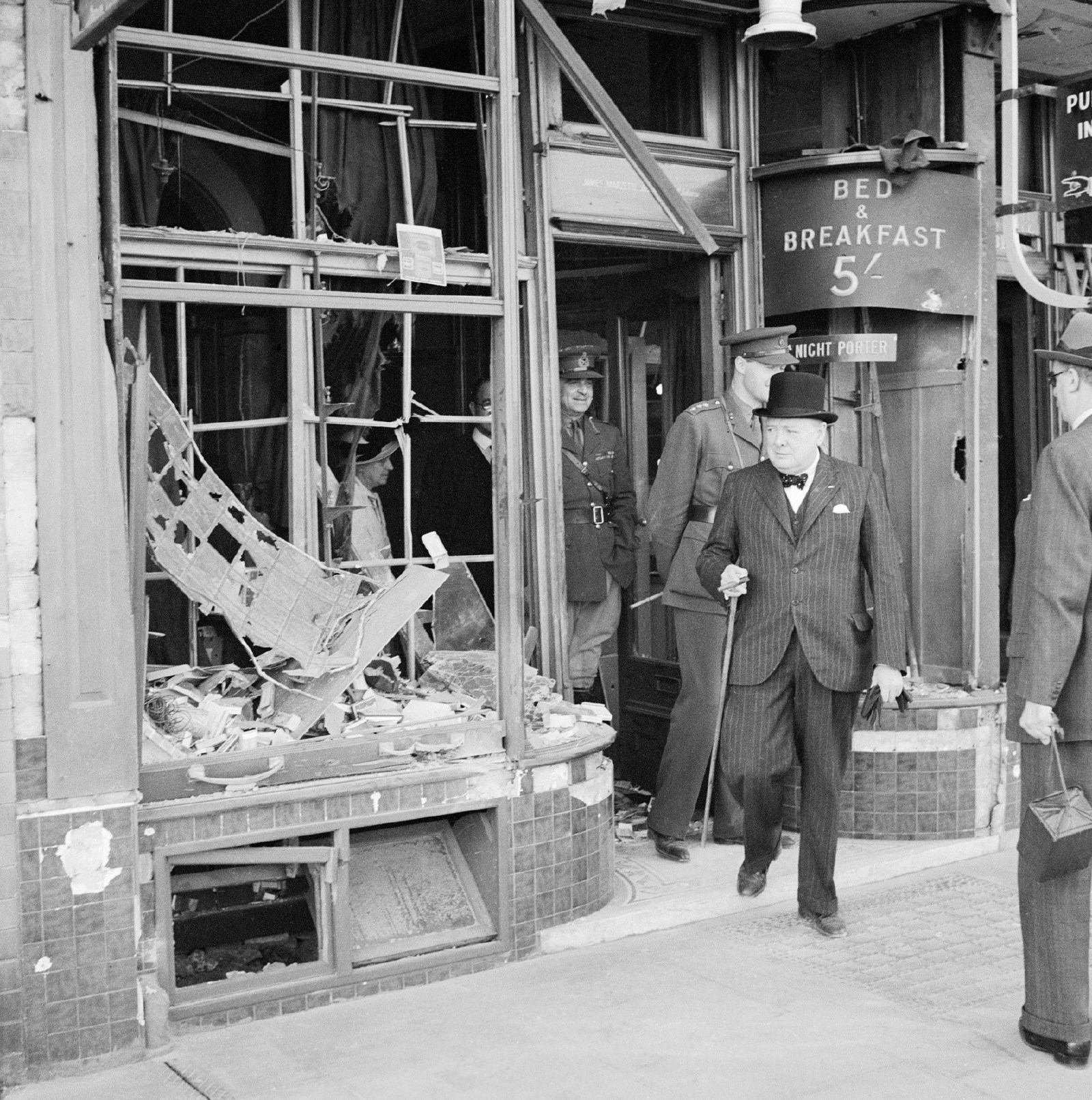
Churchill inspects bomb damage caused by the German Luftwaffe during night air raids in Ramsgate, Kent, 28 August 1940. © Imperial War Museum H3514
Prime Minister, First Lord of the Treasury and Minister of Defence on 10 May 1940.
Known to this day as a gifted orator, he gave his important ‘Finest Hour’ speech in June, inspiring the British people to fight on.
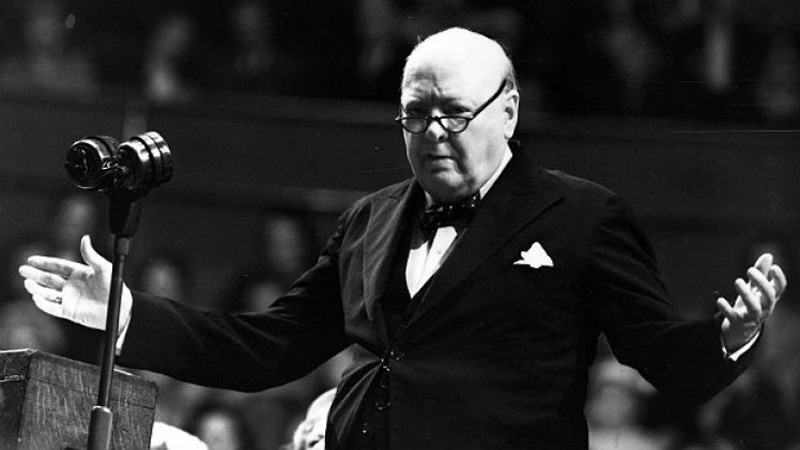
Winston Churchill addressing the crowds
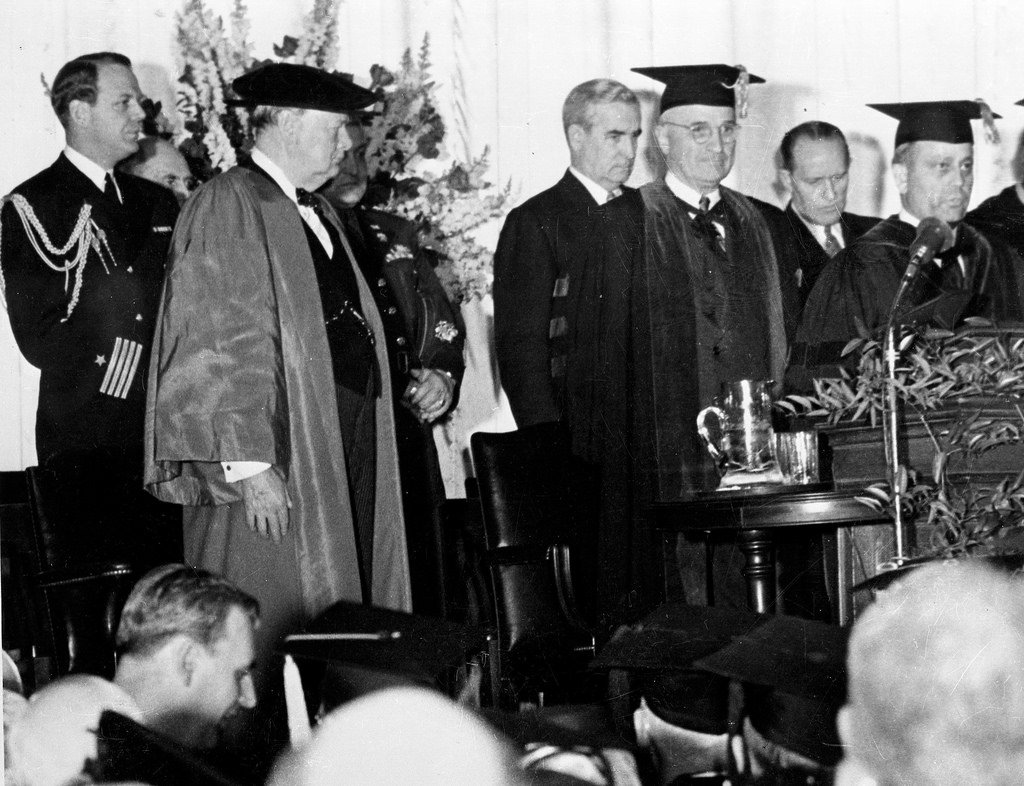
Winston Churchill and US President Harry Truman at Westminster College in Fulton, Missouri, 1946
He gave his famous ‘Iron Curtain’ speech in Fulton, Missouri at the invitation of President Harry Truman on 5 March, which is noted as the beginning of the Cold War.
Second term as Prime Minister and First Lord of the Treasury
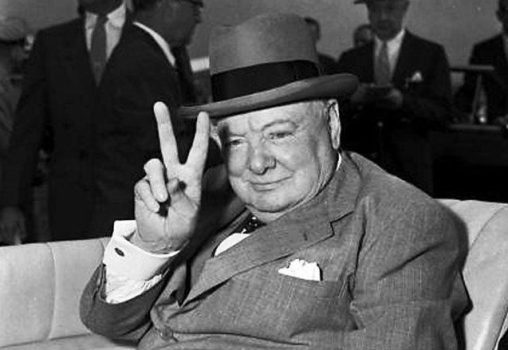
Winston Churchill resigns after leading Britain as prime minister for the second time and is replaced by Anthony Eden, April 5, 1955
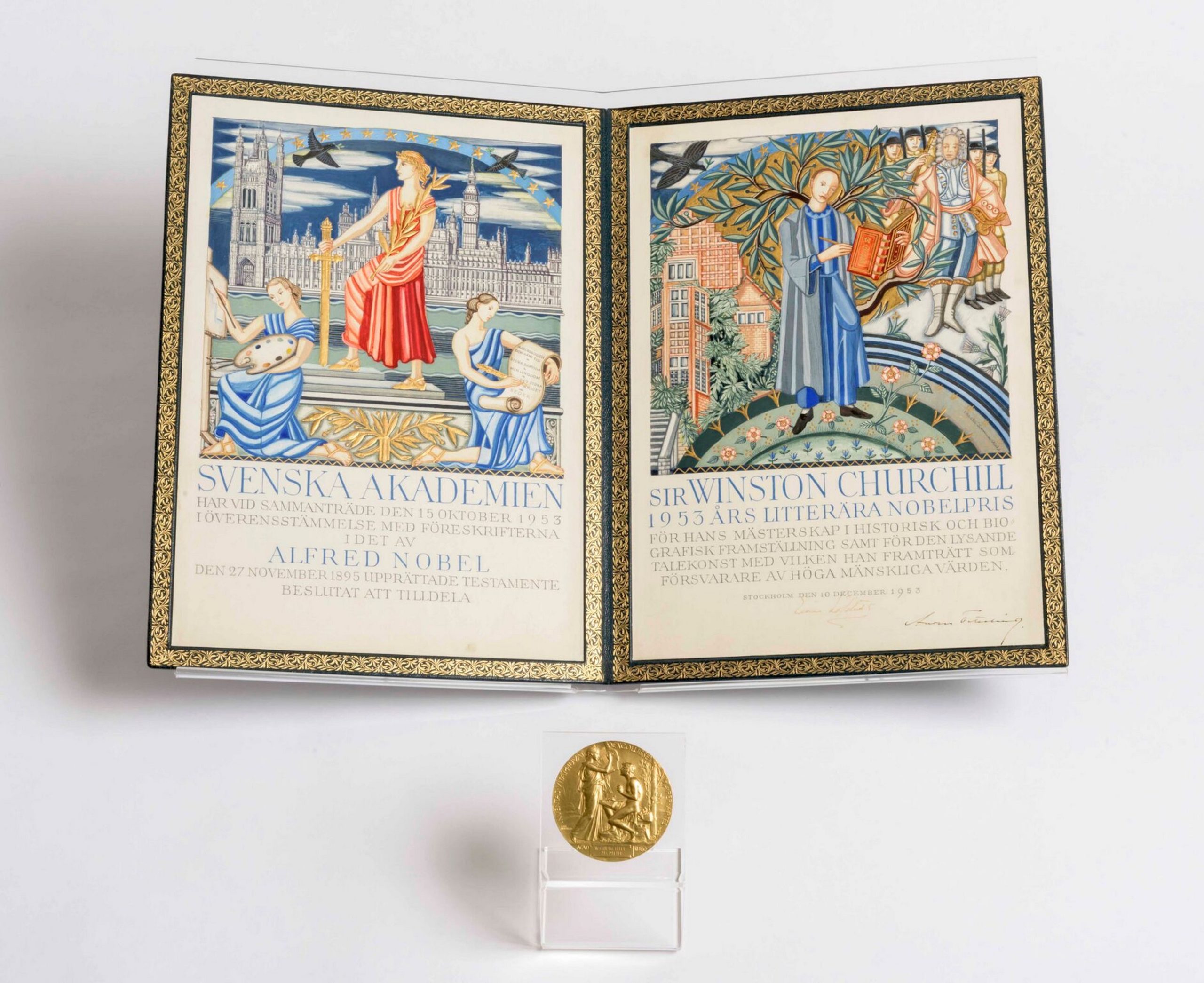
Awarded the Nobel Prize for Literature for his body of work including books and speeches.
Awarded honorary US Citizenship by President John F Kennedy.
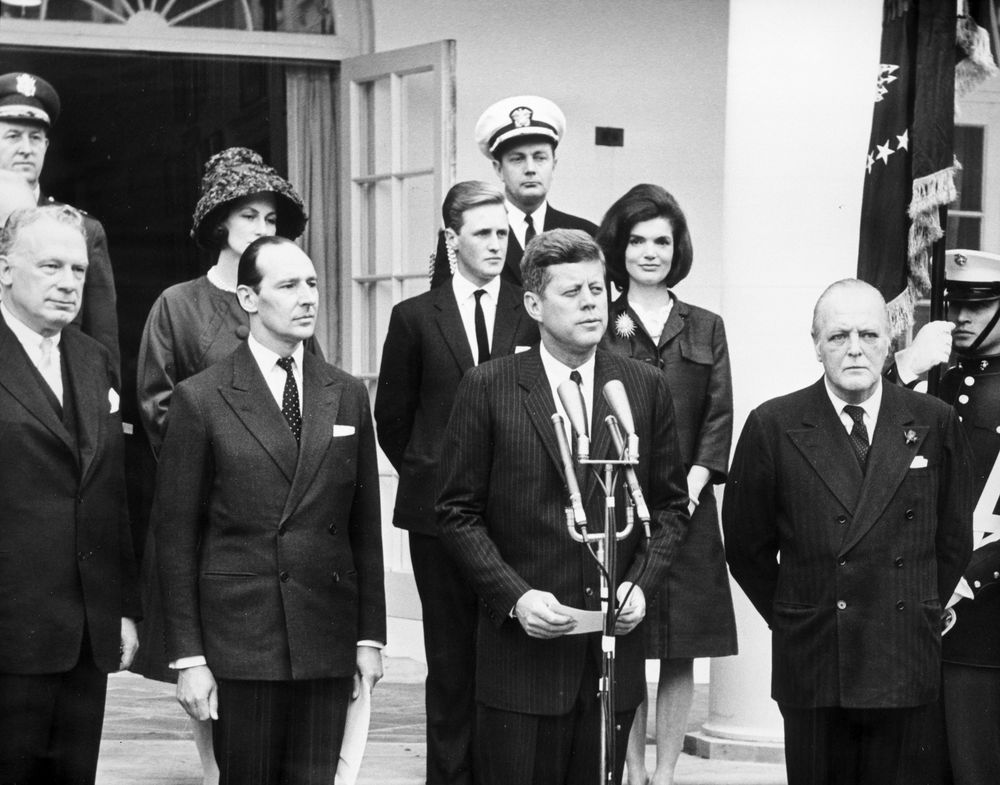
President John F Kennedy declares Winston Churchill an honorary citizen of the United States
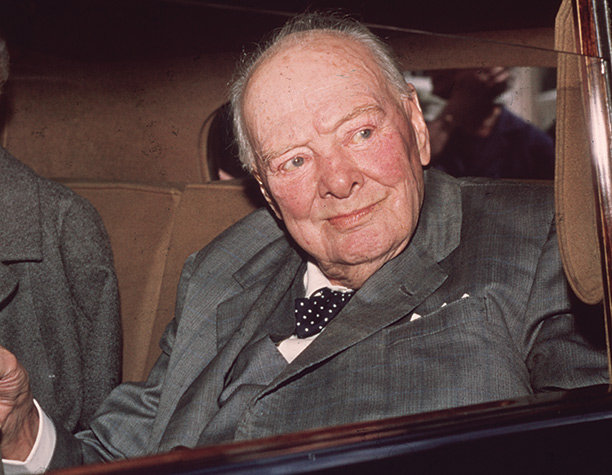
He served as an MP until he retired from politics after more than 60 years in Parliament.
Died on 24 January and was granted a state funeral by HM Queen Elizabeth II.
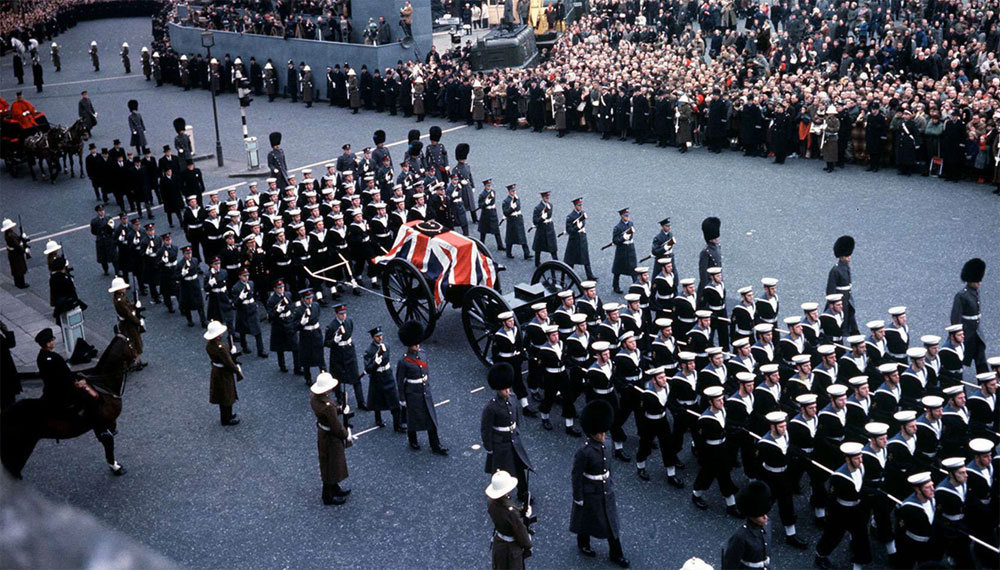
Winston Churchill's funeral cortege makes its way down Whitehall in London. In London, a million people reportedly gathered along the route to watch the procession pass by on the morning of the state funeral, 30 January 1965
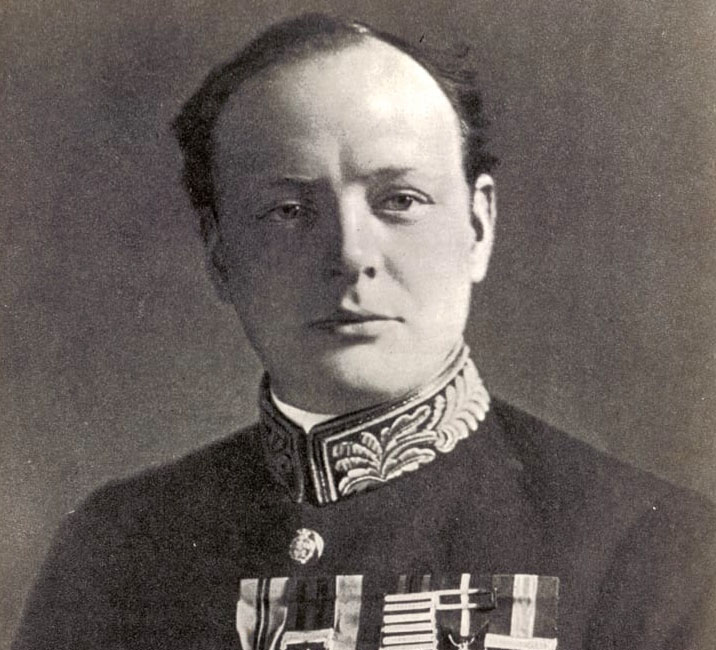
Winston Churchill was voted the Greatest Briton in a UK 2002 BBC poll, primarily for his efforts to inspire the British people during the Second World War. He received more votes than Princess Diana, Charles Darwin, William Shakespeare, Isaac Newton and Oliver Cromwell.
During the 1930s, Churchill was the leading voice in fierce opposition to the appeasement of Germany, with the National Socialist Workers (Nazi) Party in government. At the time, with memories fresh of the First World War, the government and the public had no desire to listen to Churchill’s dire warnings and by 1939 Britain was again at war with Germany.
When Churchill became Prime Minister in 1940 he brought a new vitality to the war effort from the Battle of Britain through to Victory in Europe (VE) Day five years later. His riveting speeches and constant visibility to the public helped galvanise the British spirit in the fight against Nazi tyranny.
In his lifetime, Churchill published more than 40 books in 60 volumes.
View his writingWorking to celebrate the life and achievements of a great leader.
Young ChurchilliansIn his lifetime, Churchill published more than 40 books in 60 volumes.
View PublicationsGet the Churchill Bulletin delivered to your inbox once a month.